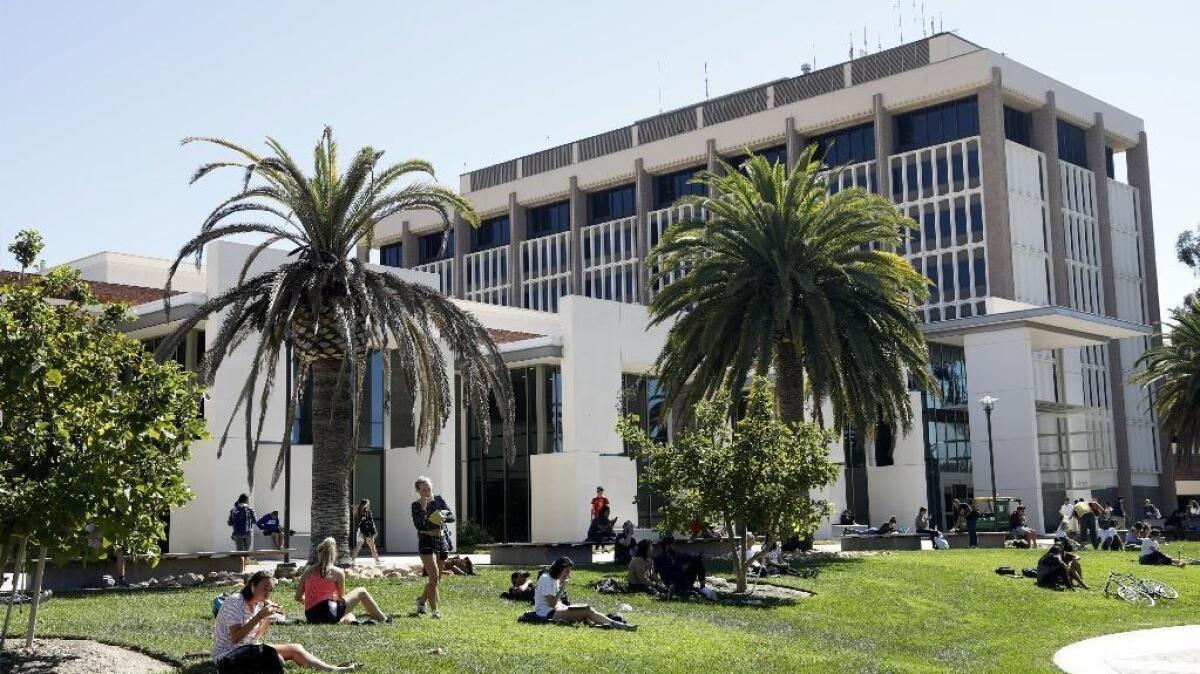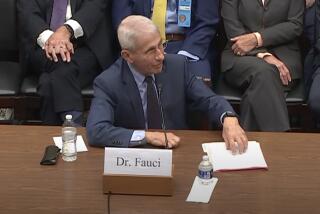Senate inquiry finds problems with China-funded Confucius Institute at U.S. campuses

Reporting from Washington — Illustrating the wide range of U.S. grievances with China, a Senate committee released a report Wednesday highly critical of the Beijing-funded Confucius Institute, which operates centers at about 100 American universities.
After an eight-month probe, the Senate’s Permanent Subcommittee on Investigations described systemic problems in the institute’s language programs, saying they lack transparency, threaten academic freedom and give the Chinese government access to the U.S. education system that China does not extend to American programs.
Senate investigators uncovered no evidence connecting the Confucius Institute with Chinese espionage, an increasing U.S. concern that has prompted the Trump administration to step up its monitoring and enforcement efforts at American campuses.
But the investigation, which was earlier reported by The Times, found that the Chinese government had provided about $158 million over the last 13 years to establish and run more than 100 Confucius Institutes in the United States, including seven in California, to promote the study of Mandarin and Chinese culture at universities and K-12 schools.
The subcommittee also turned up lapses in U.S. government agencies’ oversight of the programs. Its 92-page report detailed instances in which the State Department improperly issued U.S. visas to Confucius Institute teachers from China, while the Education Department failed both to establish clear guidelines and to ensure that universities complied with requirements to report grants from foreign governments of $250,000 or more in any year.
Investigators said that the United States had attempted to set up similar programs at Chinese campuses. But U.S. funding for those American Cultural Centers ended last fall, the report said, after at least 80 episodes of “active interference by the Chinese government” that prevented the opening or functioning of some of the 29 centers planned by the State Department.
“Absent full transparency … and full reciprocity for U.S. cultural outreach efforts on college campuses in China, Confucius Institutes should not continue in the United States,” Sen. Rob Portman (R-Ohio), the subcommittee’s chairman, said in a statement. Staff investigators said they were exploring legislative options.
Chinese Embassy spokespersons in Washington did not respond to requests for comment. The director of the Confucius Institute U.S. Center, a kind of public relations and support office for the programs, denied that the Chinese government has had a big hand in the operations of Confucius Institute centers as the report indicated.
The Confucius Institute “is not controlled by China, but is controlled by American universities and is part of American universities,” said the director, Gao Qing.
U.S. universities have varying arrangements with the Confucius Institute and its Beijing-based funding agency, Hanban. But each of the campus programs is generally managed by a board consisting of members from the U.S. university and a partner Chinese school, which sends teachers and provides teaching material.
University administrators have been keen to host the Confucius Institute, in part to attract Chinese international students paying full tuition, despite reported instances of Confucius Institute staff attempting to influence public events and speakers, particularly on subjects sensitive to China, such as Taiwan, the island entity that China claims as its own.
The Confucius program has drawn increasing suspicion among American officials, in part because the centers are soft-power instruments of Beijing. Separately, U.S. policymakers have taken a confrontational approach to China’s aggressive moves to strengthen its high-tech firms, military capabilities and political influence around the world.
FBI Director Christopher Wray last year called the academic community naive about the intelligence-gathering threat from China and said that the bureau was “warily watching” the Confucius Institute.
Although China has indicated no backing away from its global Confucius program — there are about 500 centers worldwide — analysts said its heyday in the United States appears to be over.
Since late 2017, 13 Confucius Institute centers in the United States have closed or given notice of closing, including at the University of Michigan. Tufts and some other universities are weighing whether to renew contracts with Hanban. In 2014, the University of Chicago cut its ties with the institute after faculty members raised concerns about the threat to academic integrity.
The American Council on Education, a group representing colleges and universities, last summer urged presidents of schools hosting Confucius Institute centers to take a number of steps in light of the heightened concerns about China. It recommended making public any memorandums of understanding with Hanban, as well as financial information, and ensuring that Confucius Institute activities do not infringe on academic freedom.
The Senate subcommittee report went further. It recommended that Congress require the disclosure of contracts for students and faculty to review, that the federal government consider making the Confucius Institute register as a foreign agent working on behalf of the Chinese government and monitor its compliance with visa regulations, and that American universities properly report foreign gifts.
Officials from the State and Education departments and from Congress’ Government Accountability Office, which conducted a parallel review of the Confucius Institute, are scheduled to testify on “China’s impact on the U.S. Education System” at a Senate hearing Thursday.
More to Read
Inside the business of entertainment
The Wide Shot brings you news, analysis and insights on everything from streaming wars to production — and what it all means for the future.
You may occasionally receive promotional content from the Los Angeles Times.











